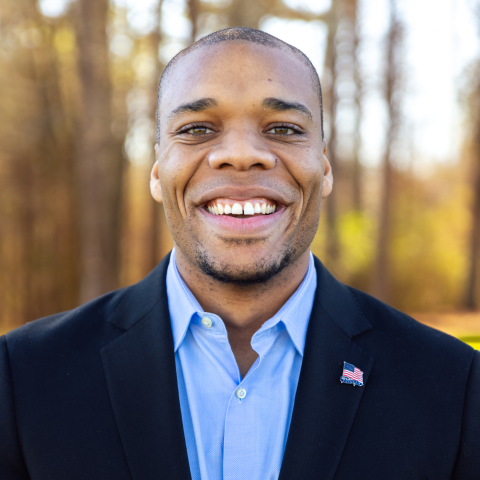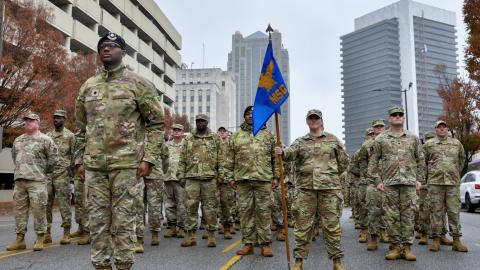Every November 11th, I meet veterans who seem hard-pressed to place a series of qualifiers on their military service. “I was once in the military, but I only served for a couple years.” Or, “I was in the military, but I only served in the reserves, not on active duty.” Or, “Yes I served, but I never deployed.”
They all have one thing in common: a reticence to share their military story. They speak as if their story must be discounted in some way—or else, they might somehow steal valor away from the “real” veterans with long and distinguished careers. It shouldn’t be that way.
All veterans who served honorably answered their country’s call to serve. All veterans ought to be proud of their service. And indeed, all veterans have a story to tell.
Of course, those who went above and beyond for our country deserve special recognition. There are some veterans who served over 20 years on active duty, served multiple deployments to combat zones, or suffered life-altering injuries. Those veterans gave more than the rest of us, and they ought to be saluted by us all.
But for those who don’t have the same decorated record, you’re still a veteran and your story matters too.
Now more than ever, the next generation needs to hear from you. Sharing your story about how even a brief stint in the Armed Forces made a difference in your life can have a profound impact on potential recruits considering military service. The lessons that you learned and the patriotism that you displayed are exactly what America’s youth needs to hear.
The truth is that most young recruits in the military will have normal careers, but normal is still exceptional. Many will serve for just a single contract. Some reservists might not be called to active duty. And most won’t have some extraordinary story of bravery on the battlefield. And yet, such a record can still leave a profound impact on our military and the life of the recruit.
This is particularly true today as we are in a historic recruitment crisis. Every branch of the Armed Forces desperately needs more volunteers, regardless of how long those service members ultimately stay in the military. In fact, military recruitment is at its lowest point since the advent of the All-Volunteer Force 50 years ago.
If veterans disqualify themselves and hold back their story, the crisis only worsens. Data shows that young recruits join the military mainly due to personal interaction with veterans. Nearly 80% of those recently recruited into the military have a relative who also served. Hearing stories from family members and close friends who served inspires recruits who might not otherwise consider enlisting.
That’s why it’s even more important that all veterans, regardless of their time in service, proudly share their experiences. As entertaining as they may be, the best “Be All You Can Be” Army ads will never wield as much influence as a veteran’s personal story.
These stories can reassure young people that enlistment doesn’t mean they are “signing their life away.” A conversation with a veteran who had a brief but meaningful experience in the military will show that any contribution in uniform can make a difference. And these stories can convey to young people that the military indeed offers them something they are searching for – discipline, purpose, adventure, a calling, and self-improvement. They need to hear that all service contributes to a safe, strong, and free America.
Beyond the military’s recruiting crisis, the values and life lessons that veterans glean from military service, however short it may have been, are precisely what we need more of in our society. The national moment that we’re in today calls for every veteran’s story—including yours.

















